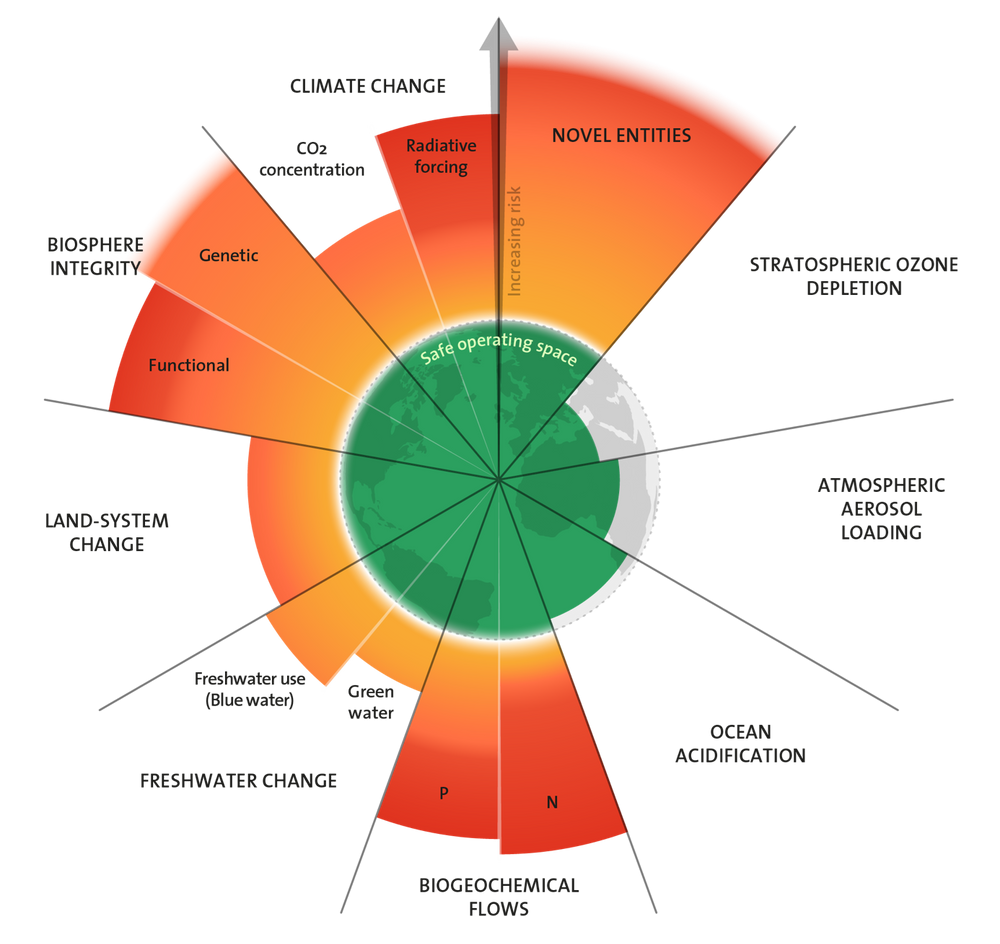Phosphorus and nitrogen problems worse than previously thought, new research shows
The world’s use and production of the agricultural nutrients phosphorus and nitrogen are causing even higher levels of risk to the planet than has previously been known, a new scientific report from the Stockholm Resilience Centre has indicated. The environmental company Ragn-Sells now calls for swift and comprehensive action.
The new report from the Stockholm Resilience Centre (SRC) is a major update on the scientific understanding of the so-called Planetary Boundaries, a well-established concept illustrating limits within which humanity can safely continue to develop and thrive.
– The updated research shows the extreme levels of risk brought on by today’s production and handling of phosphorus and nitrogen, even more clearly than before. It is urgent that we establish closed loops for these key nutrients, in order to avoid irreversible effects on the planet, says Pär Larshans, Director of Sustainability at Ragn-Sells.
The Planetary Boundaries were established in 2009 by 28 scientists led by Professor Johan Rockström, then director of the SRC. Nine key processes were identified, among them climate change, freshwater use, and the cycles of the nutrients phosphorus and nitrogen. The scientists then proposed quantitative boundaries, stating that crossing a boundary means a risk of generating “large-scale abrupt or irreversible environmental changes”.
The assessment of whether these boundaries have been exceeded has then been regularly updated by the SRC to reflect increasing scientific knowledge. In the new report, published on September 13, the assessment of global phosphorus and nitrogen flows has been adjusted to show that the risk of irreversible effects on the planet is greater than previous research has indicated.
– Not only do phosphorus and nitrogen cause eutrophication due to outdated wastewater management, but they are produced using methods that harm the environment and drive climate change. We need to turn every wastewater treatment plant into a resource plant, producing fertiliser nutrients from urban waste using circular technology, says Mr. Larshans.
Phosphorus and nitrogen are vital to agriculture’s ability to produce enough food for the growing global population. However, the study states, industry and agriculture have drastically altered their flows, causing eutrophication and “already affecting climate and biosphere integrity”. The increasing release of these nutrients has led SRC scientists to represent the transgression of their respective planetary boundaries using the darkest purple color available in the well-known spider diagram, indicating a very high risk of irreversible effects on the health of the planet.
– If we are serious about building a sustainable society, we have to start using the raw materials we already have. The EU should set higher ambitions for circulating phosphorus and nitrogen, and rewrite the upcoming Urban Wastewater Directive to realise those ambitions, says Mr. Larshans.
For more information or interviews, please contact
Pär Larshans, Director of Sustainability at Ragn-Sells, +46 70 927 29 63, par.larshans@ragnsells.com
Emma Ranerfors, Press Officer at Ragn-Sells, +46 70 927 24 16, press@ragnsells.com
Azote for Stockholm Resilience Centre, based on analysis in Richardson et al 2023.
About Ragn-Sells Group
The environmental company Ragn-Sells converts waste into raw materials that can be used over and over again. Ragn-Sells drives the transition to a circular economy through solutions that reduce its own and other actors' environmental and climate impact. Ragn-Sells wants to be living proof that caring for the earth and business go hand in hand. Ragn-Sells is a family owned corporate group founded in 1881. The company operates in four countries and employs 2,500 people. In 2022, Ragn-Sells’ turnover was SEK 8.7 billion. www.ragnsells.com
